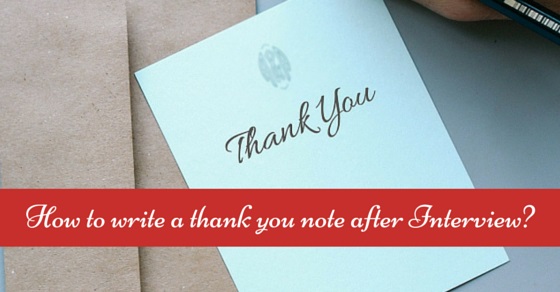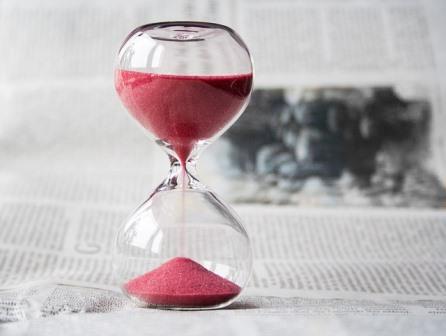Congrats — you stunned your interviewees with your remarkable answers!
You truly wowed the procuring administrator and official you talked with, and they both guaranteed you the organization would be in touch soon regarding their choice.
You are a shoe-in for the job, and you’ll most likely get it — unless you neglect to follow-up.
 It might standout to be the most cliché advice for displaying ethics during job procurement, however dropping a thank you note after an interview truly is vital to wrap everything up. So how would you compose the ideal card to say thanks?
It might standout to be the most cliché advice for displaying ethics during job procurement, however dropping a thank you note after an interview truly is vital to wrap everything up. So how would you compose the ideal card to say thanks?
Consider these 15 master tips for verifying your card to say thanks is fruitful in every circumstance.
14 Tips to Write a Thank You Note Post Interview:
1. Don’t be in a hurry:
Avoid pre writing the card to say thanks before the meeting. Often it is noticed that candidates towards the end of the meeting hand the interviewer a card to say thanks.
Do not run ahead of time and make a genuine note following a confirmation from the organization’s end.
2. Amalgamate content with organizational culture:
Consider the individual questioner and the organization culture before sending your messages.
A more conventional association may incline towards a hand-written letter, while an engineering start-up may expect an email quickly.
3. Build an early impression:
In today’s business, it is apt to send both an email and a note. The email gets there quick, on the off chance that the manager can settle on a choice immediately.
The snail-mail thank-you letter leaves an enduring impression that waits longer. How you catch up with the interviewer demonstrates how you will correspond with colleagues, customers and different stakeholders, on the off chance that you are procured.
The snail-mail thank you showcases your effort to write and demonstrates that you will endeavour.
4. Jotting down is a Boon:
 Make sure to take notes amid the meeting with the goal that you can customize the card to say thanks.
Make sure to take notes amid the meeting with the goal that you can customize the card to say thanks.
Incorporate a goody from your discussion that you know will help the interviewer recollect who you are, and utilize the card to say thanks to remind him/her why you are a solid match for the position.
5. Give it a “personal” touch:
Notice something that the questioner talked about and personalise your note by incorporating professional issues that are critical to them, conceivably a portion of the business activities that they had raised during the interview. It makes the note more significant.
6. Enhance your value:
Don’t simply thank your interviewer for the time they spent. Give extra esteem by giving more insights regarding why the head honcho ought to contract you.
Make sure you utilize particular cases [of how] your past execution [makes you a] extraordinary contender for this new occupation.
7. Your reflection is your Resume:
Make sure to express your enthusiasm for being considered for the particular position you met for.
Your letter ought to pass on excitement, brainpower and professionalism. Finally, attach a copy of your résume to hit the ground running.
8. Attach your Business card:
 Quickly after any gathering, our best practice is to send a customized thank-you email to each individual you met with. Taking that forward, compose a note to say thanks, stick your business card inside and send it out ASAP.
Quickly after any gathering, our best practice is to send a customized thank-you email to each individual you met with. Taking that forward, compose a note to say thanks, stick your business card inside and send it out ASAP.
9. Address your flaws:
Admit to a flaw and say something like this: ‘I wasn’t totally fulfilled by my solution for your inquiry concerning my administration style, and I’d like to take this chance to quickly readdress it.’
This can be a compelling approach to re-try an inquiry address that you mucked up amid the genuine meeting.
10. Do the “undone”:
Numerous hopefuls report that after they leave the meeting, they think about the various things they could have said amid the interview.
Instead of naming this an obligation, transform it into an advantage by talking about these focuses in the thank-you letter, and help the reader discover your capacity to deliver comparative results for the progress of the organization.
11. Generate an air of belonging:
A genuine recommendation is to send them a proposal of the things you will finish in your initial 90 days at work.
As such, begin working before you even get enlisted. Don’t simply say, ‘Much obliged concerning your time; I’m truly energized, blah.’ Everyone says that.
Your objective is to emerge and be one of a kind while demonstrating your quality. What could be better than projecting yourself as a part of the loaf already keen to confront the activities and obstacles face by the organization?
12. Patience might pay:
 How about we assume, for purpose of contention, that towards the end of the meeting, the interviewer tells the applicant that she can expect the result within two weeks.
How about we assume, for purpose of contention, that towards the end of the meeting, the interviewer tells the applicant that she can expect the result within two weeks.
Two weeks pass, and there is no notification from their end. The candidate ought to hold up a third week and after that send what can be called a ‘thank-you dismissal letter.’
After three weeks, the applicant ought to compose, ‘Thank you again for meeting me for the position. I understand you have likely chosen to run with an alternate employee.
While I am regularly disillusioned, I do acknowledge having had the chance to meeting and anticipate seeing you later on. All the best.’
This will help the management understand that you have been looking forward to hearing from them and were patient enough to wait for longer than expected.
13. Smoothen your approach to Rejection:
In case you don’t need the employment, still send a card to say thanks telling them why you’re declining the employment and what occupation would be a solid match. Things could change, and they may elude you to another person.
In case they let you know that they employed another person, thank them for telling you, and let them know that you still wish to procure a career with their organization.
Don’t inquire as to why you didn’t land the position, which could put them on edge and make them uncomfortable. Continuously invite future potential outcomes.
14. Remember ‘Time is precious’:
It is best to send an email within a couple of hours of the meeting and a manually written note within 24 hours.
Thanking the interviewer for his or her time is not just neighborly; however it additionally shows a true enthusiasm for the position and the organization. Cards to say thanks are more than simply an obliging approach to tell your questioner you admire his or her time. On the off chance that you compose your card to say thanks the right way, utilize it to emphasize why you’re really great fit for the employment.







































